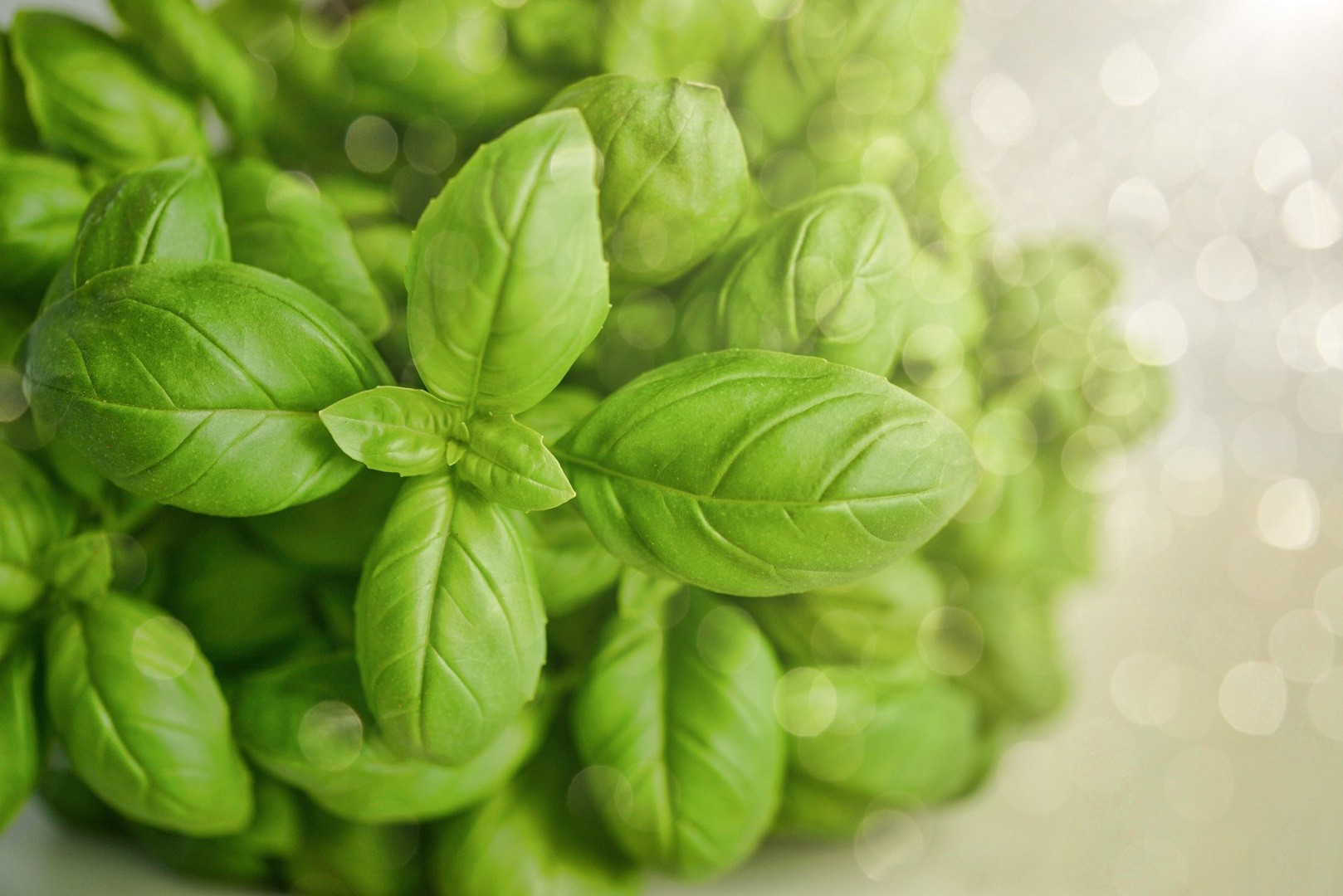
Basil (ocimum basilicum) is an aromatic herb that is widely grown in Iran, India and other countries in Asia. Its leaves are light green in colour and resemble peppermint leaves. Basil is commonly used as flavouring in the traditional dishes of the countries where it is grown originally, because this herb thrives only in hot and dry conditions.
Basil is best known for its fragrant leaves which are used fresh or dried, to enhance the flavour of meats, fish, vegetables and sauces. Basil gives off a very strong flavour that it is the main ingredient in pesto sauce. Among the many varieties of basil, sweet basil, Thai or holy basil are the main ones that are used in cooking.
Its popularity in Asian cuisine has overshadowed its medicinal properties which range from being anti-inflammatory to anti-carcinogenic.
Nutritional information
Basil contains high amounts of:
- flavonoids such as orientin and vicenin
- volatile oils like estragole, linalook, cineole, eugenole, sabinene, myrcene and limonene
- vitamins A, C and K
- iron
- calcium
- manganese
- magnesium
- potassium
Health benefits
Anti-bacterial
Basil contains volatile oils that can kill and inhibit the growth of infectious bacteria such as staphylococcus, as well as those that have become resistant to antibiotics. Its volatile oils are so potent that rinsing raw vegetables with a solution containing 1% of basil oil is enough to kill bacteria that may cause diarrhoea.
Anti-inflammatory
Basil contains eugenol, a fatty acid, which prevents swelling in the body, making it suitable for people with arthritis and migraine.
Heart health
Basil is good for your heart because it can prevent calcification in the arteries, and contains high amounts of magnesium to relax blood vessels and increase blood circulation.
Anti-oxidant and anti-carcinogenic
Cellular damage by free radicals often leads to cancer. Basil contains flavonoids, beta carotene and anti-oxidant vitamins which help protect cell structures from free radical damage. Its anti-oxidant properties also help prevent premature ageing and age-related problems.
Hair and skin
The essential oil of basil generally enhances the lustre of skin and hair and may also be used to treat skin problems like acne and psoriasis.
Digestive health
Basil tea may be used to treat constipation, stomach cramps, indigestion and flatulence. It may also be used to relieve stomach discomfort due to gas.
Respiratory conditions
The essential oil of basil may also be used to treat symptoms of the cold, flu, whooping cough, asthma, bronchitis and sinus infections.
Nervous system
Basil oil is also used in aromatherapy to produce a calming effect, relieve migraine and improve mood, mental strength and clarity.
Other uses
Basil is also believed to be useful for the treatment of:
- malaria
- nose-bleeding
- hemiplegia
- pneumonia
- sluggish liver
- earache
- epilepsy
- kidney ailments
- jaundice
- tuberculosis
- urinary problems
- lethargy
- Insomnia
- itching
Precautions
Unlike other strong herbs, basil is not a known allergen and does not contain high amounts of purines and oxalates so that it is generally safe to use in teas or in foods.
Originally published on Aug 28, 2009








